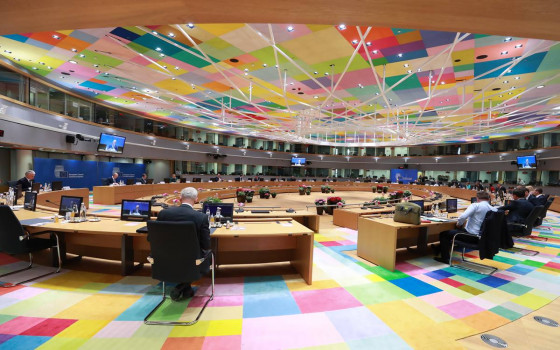
Europe's finance ministers approve revised code of conduct for business taxation to encourage fair competition

- Europe and Arabs
- Tuesday , 8 November 2022 17:39 PM GMT
Brussels: Europe and the Arabs
The European Union continues to encourage fair tax competition and tackle harmful tax practices, both within the European Union and around the world. European Union finance ministers agreed on Tuesday a revised code of conduct for business taxation: an intergovernmental political commitment by member states to implement enhanced examination rules. When researching and addressing tax measures that may be detrimental to the tax bases of other Member States. The ultimate goal is to tackle harmful tax competition, tax evasion and tax evasion in the European Union.
While the international dimension of the Code of Conduct Group’s work is widely known – the Group collaborates with third country jurisdictions to promote and strengthen good tax governance and undertakes work leading up to the regular review of the EU’s list of non-cooperative tax authorities – the core task of the Code of Conduct has been to discover and removing harmful tax measures in EU member states since 1997.
According to a European statement issued in Brussels on the sidelines of the two-day meetings of the finance and economy ministers of the European Union countries, which began yesterday:
Today's revision of the law, the first since 1997, means that member states will expand the scope of tax procedures subject to scrutiny when examining harmful tax practices within the EU. The Code update took the form of a decision by the Council and representatives of the governments of member states assembled within the Council on a revised Code of Conduct for Business Taxes. It was stated in the statement
“Today we reaffirmed our commitment to a fairer tax environment in the European Union by strengthening the rules we apply when addressing harmful tax practices in an evolving economy. Our tax experts are constantly looking for harmful tax practices. Since its inception in 1997, the Code of Conduct has successfully eliminated About 140 are harmful tax practices within the EU. The corporate tax code of conduct has not been amended since 1997, and today's agreement also improves its effectiveness in light of recent international tax reform." According to what he said
Zbyněk Stanjura, Minister of Finance of the Czech Republic
The revised Code of Conduct specifically introduces the concept of "general application tax benefits". While only preferential measures have been examined previously (such as special regulations or exemptions from the general tax system), under the new rules, the scope will also include tax features of general application. These will be considered harmful if they result in double taxation or double/multiple use of tax benefits.
The revised Code of Conduct further describes the review process in the Code of Conduct group, which is responsible for administering the Code.
This review will allow the Council's Code of Conduct Working Group to continue its work to efficiently address harmful tax practices.
The Code of Conduct is a political commitment of an intergovernmental nature. The Council's Code of Conduct is made up of high-level tax experts from member countries. It is responsible for monitoring potentially harmful tax procedures in the European Union member states.
The Code of Conduct forms the basis for the work of the Council's Code of Conduct Working Group. Its elected president is supported by the council's general secretariat.
Its work also has an international dimension aimed at promoting effective changes in relation to good tax governance around the world through cooperation. The Code of Conduct also undertakes the technical, examination and evaluation work that leads to the regular review by the Council of the European Union of the list of non-cooperative jurisdictions for tax purposes. This EU list is reviewed regularly after an in-depth review of the implementation of the commitments made by all third country jurisdictions that are part of the process.












No Comments Found